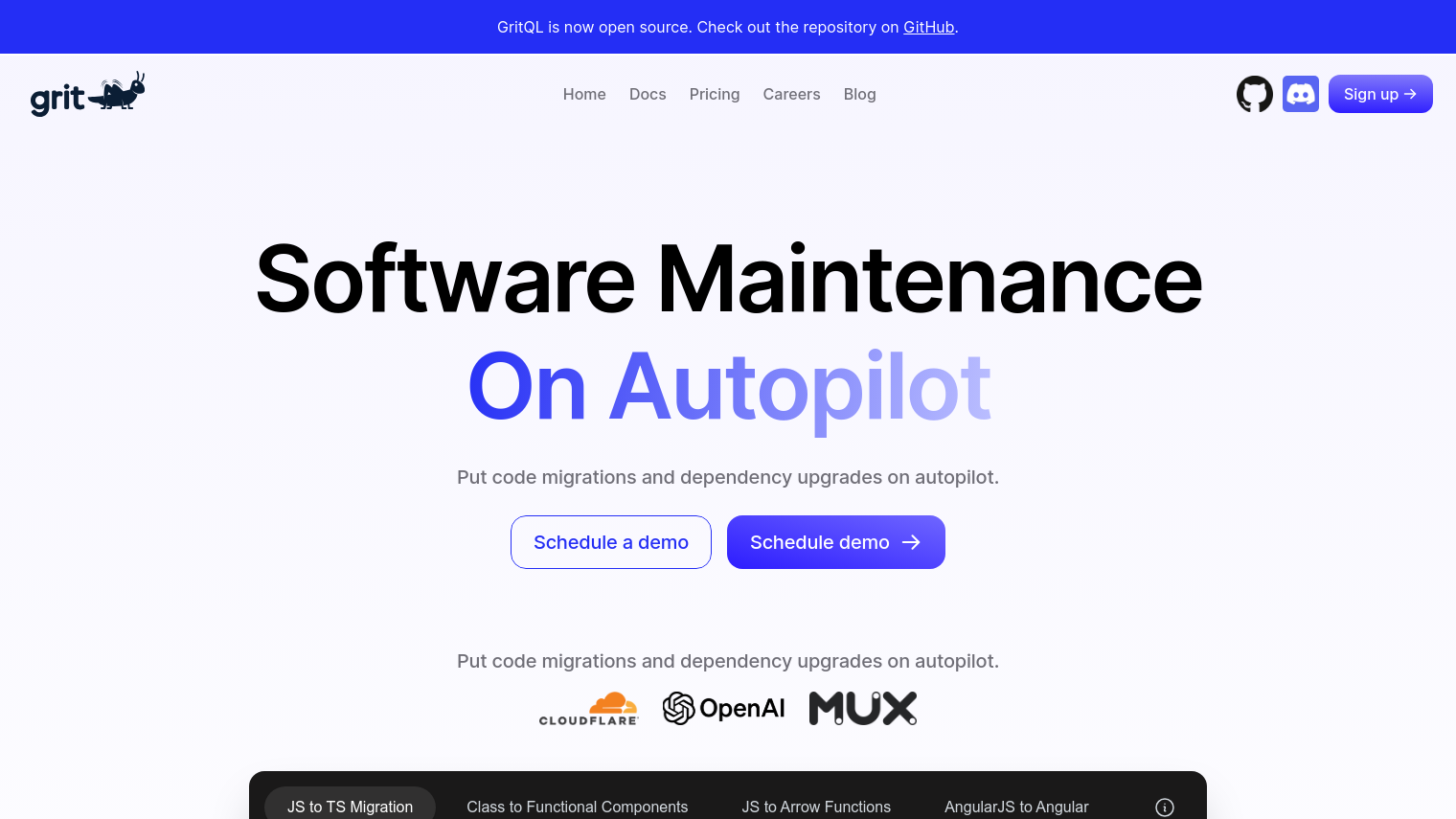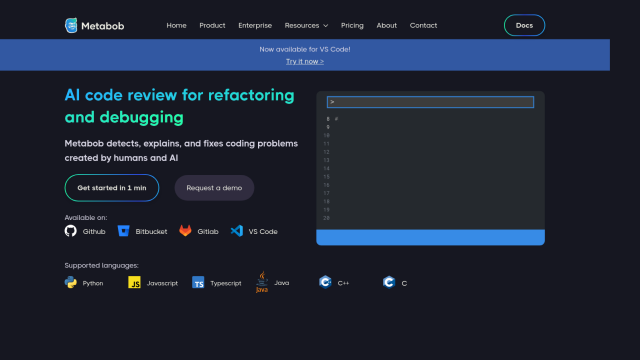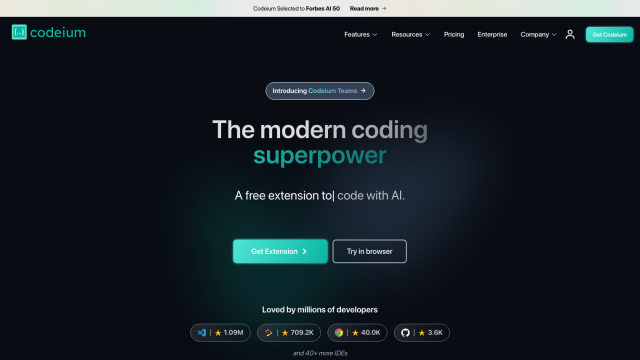Grit is a technical debt management tool that uses machine learning and static analysis to generate pull requests, focusing on code cleanup and framework migrations. It supports a wide range of languages, including JavaScript, TypeScript, Python, Java, and others, helping teams maintain their codebases efficiently.
Key features of Grit include:
- Automated Refactoring: Grit automatically generates pull requests for cleaning up technical debt, saving developers time and effort.
- Custom Patterns: Users can define their own idioms using Grit’s declarative syntax, enabling tailored code structuring and rewriting.
- Integrated Feedback: Grit detects regressions and automates best practices, ensuring that migrations align with project goals.
- Multi-Language Support: Supports refactoring across 12 languages, including JavaScript/TypeScript, Python, and more.
- Integrations: Integrates with GitHub, VS Code, and the command line for seamless usage.
Grit is particularly useful for high-velocity software teams looking to manage technical debt efficiently. Its capabilities help reduce the time lost to maintenance, improve developer velocity, and complete migrations significantly faster.
Pricing for Grit varies based on the needs of the user:
- Free: Suitable for personal and open-source use, offering support for automated refactoring across 12 languages.
- Team: Priced per month for up to 20 contributors, providing features like unlimited private repositories, GitHub integration, and migration dashboards.
- Enterprise: Designed for large teams, offering unlimited private repositories, custom CI/CD integrations, and white-glove onboarding.
Grit offers a convenient and efficient solution for teams handling technical debt, aiming to make code maintenance faster and more manageable.
Published on June 9, 2024
Related Questions
Tool Suggestions
Analyzing Grit...







